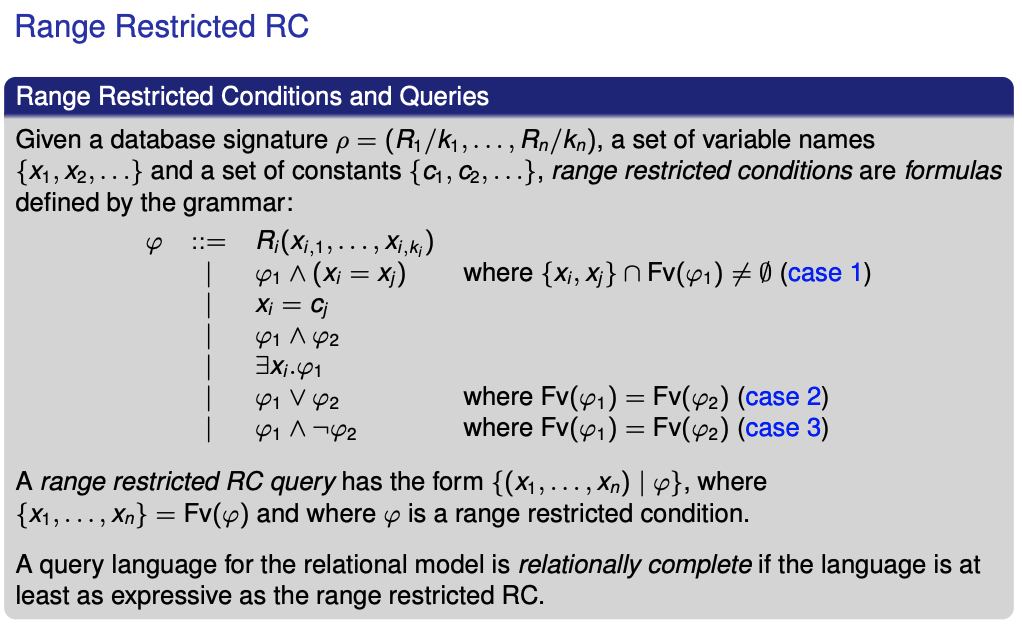Relational Calculus (RC)
Below are mainly confusing because of notation. In practice, just look at the examples, and it will be a lot clearer. However, it’s still good to know theory, see Theory vs. Practice.
Query Conditions
The idea of query conditions is to use variables and valuations to generalize conditions.
- For example:
AUTHOR(x, y)will be true of any valuation exactly when the 2-tuple of values occurs inAUTHOR.
Valuation
\thetaA valuation is a function that maps variable names to values in the universe: To denote a modification to in which variable is instead mapped to value , one writes:
These allow more complex conditions to be built from simpler conditions with logical connectives () and quantifiers ().
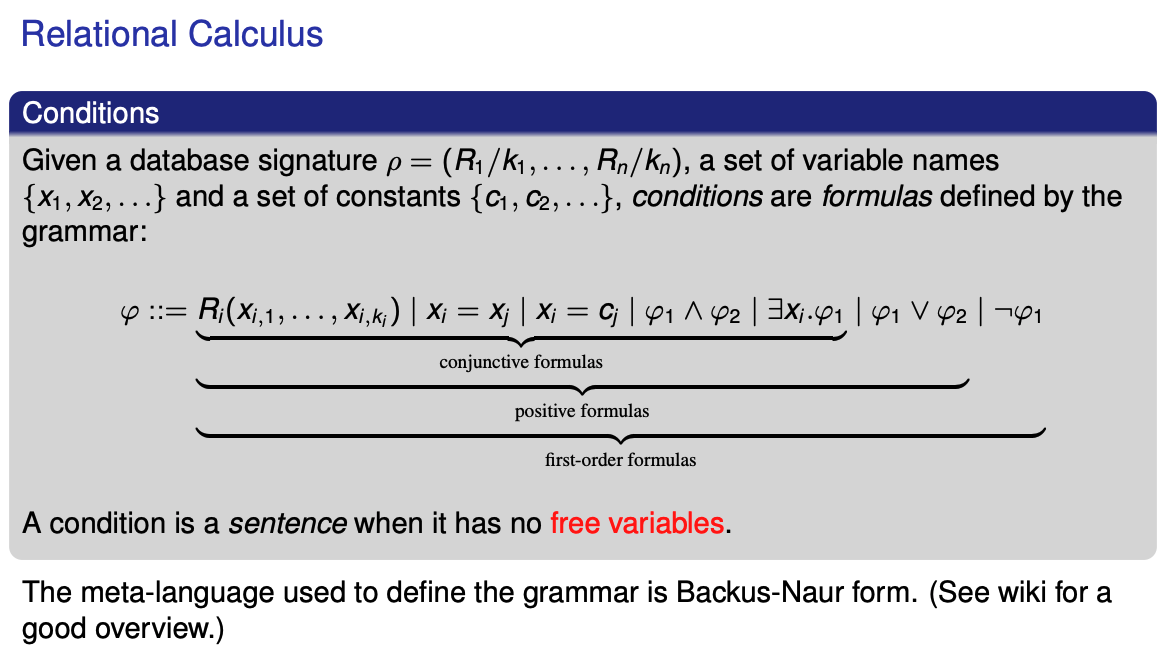
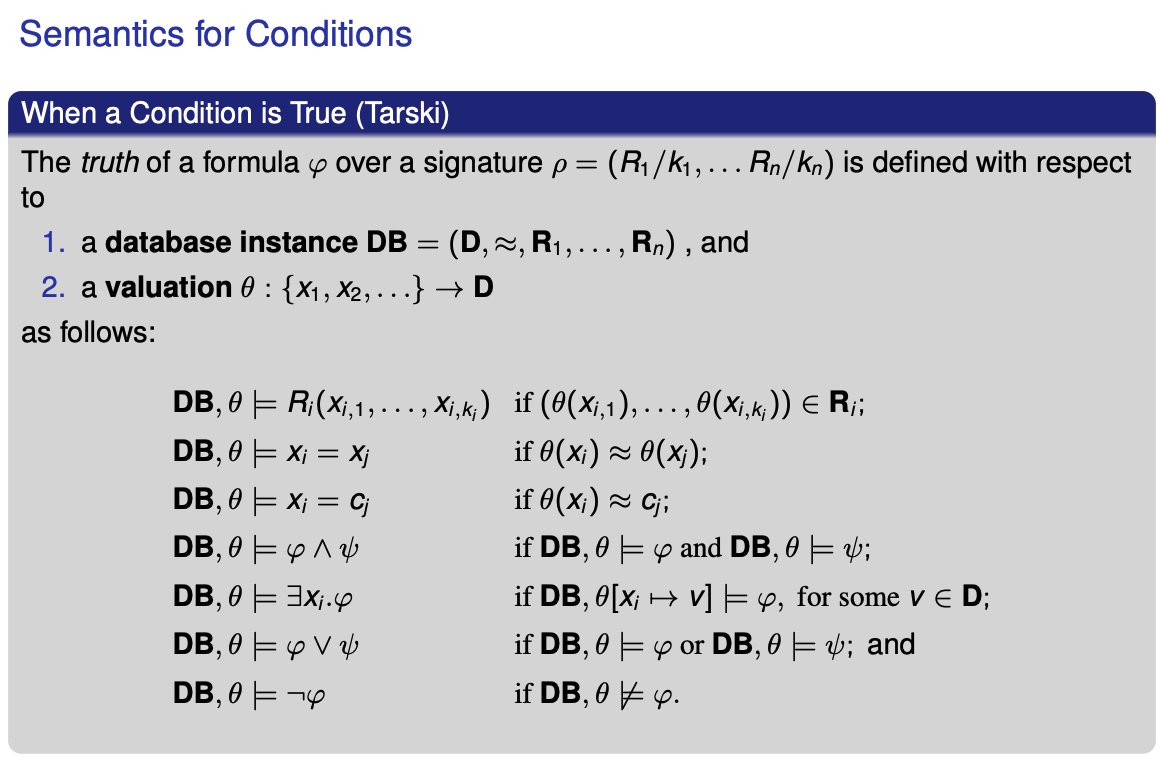
Queries
Relational Calculus (RC) Query
A query in the relational calculus is a set comprehension of the form where (are the free variables of ). Also:
- a conjunctive query is where is a conjunctive formula, and
- a positive query is where is a positive formula.
Query Answers
The answers to a query over is the relation
In other words, answers to queries are valuations applied to tuples of variables that make the formula true with respect to a database.
Some basic examples
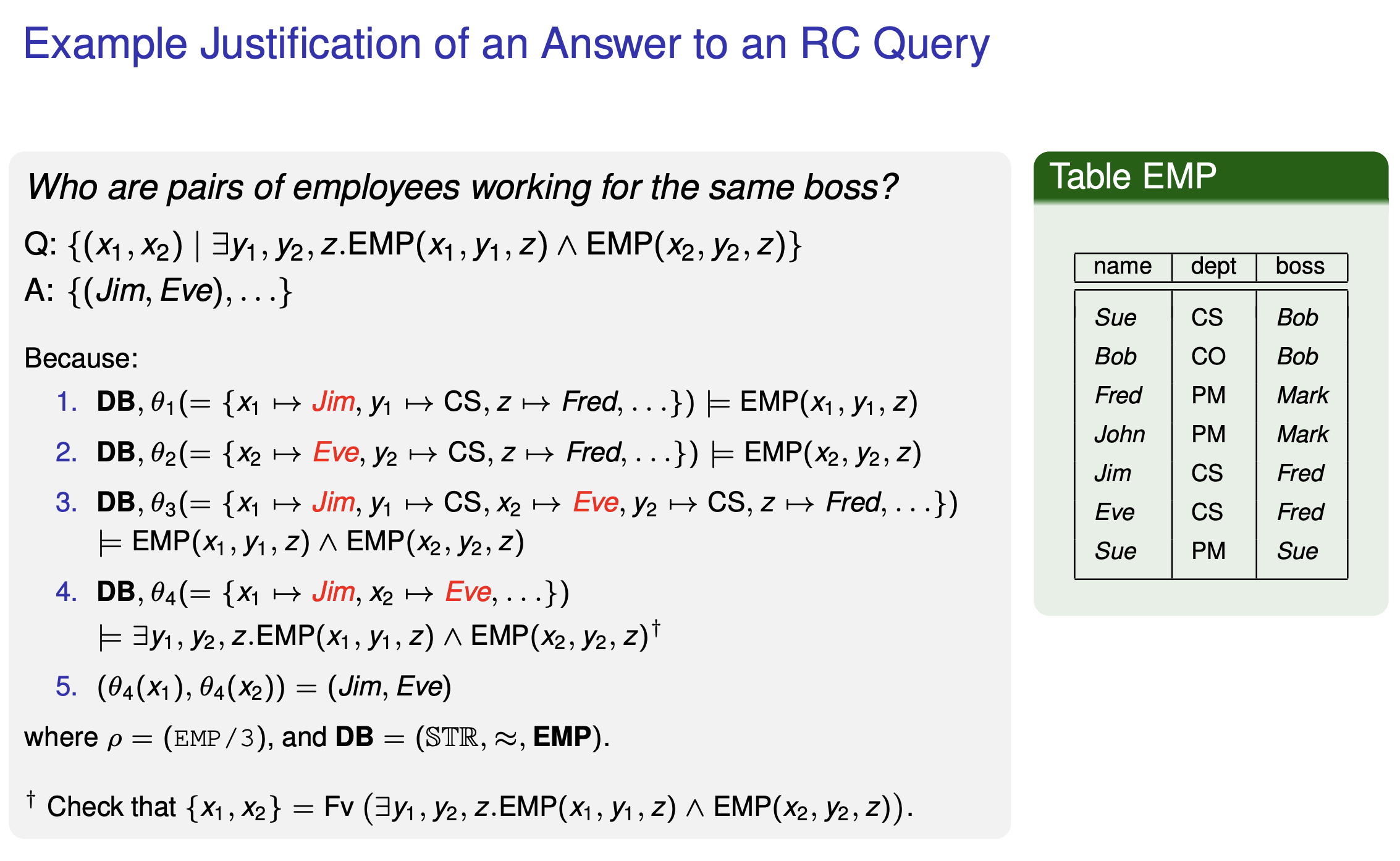
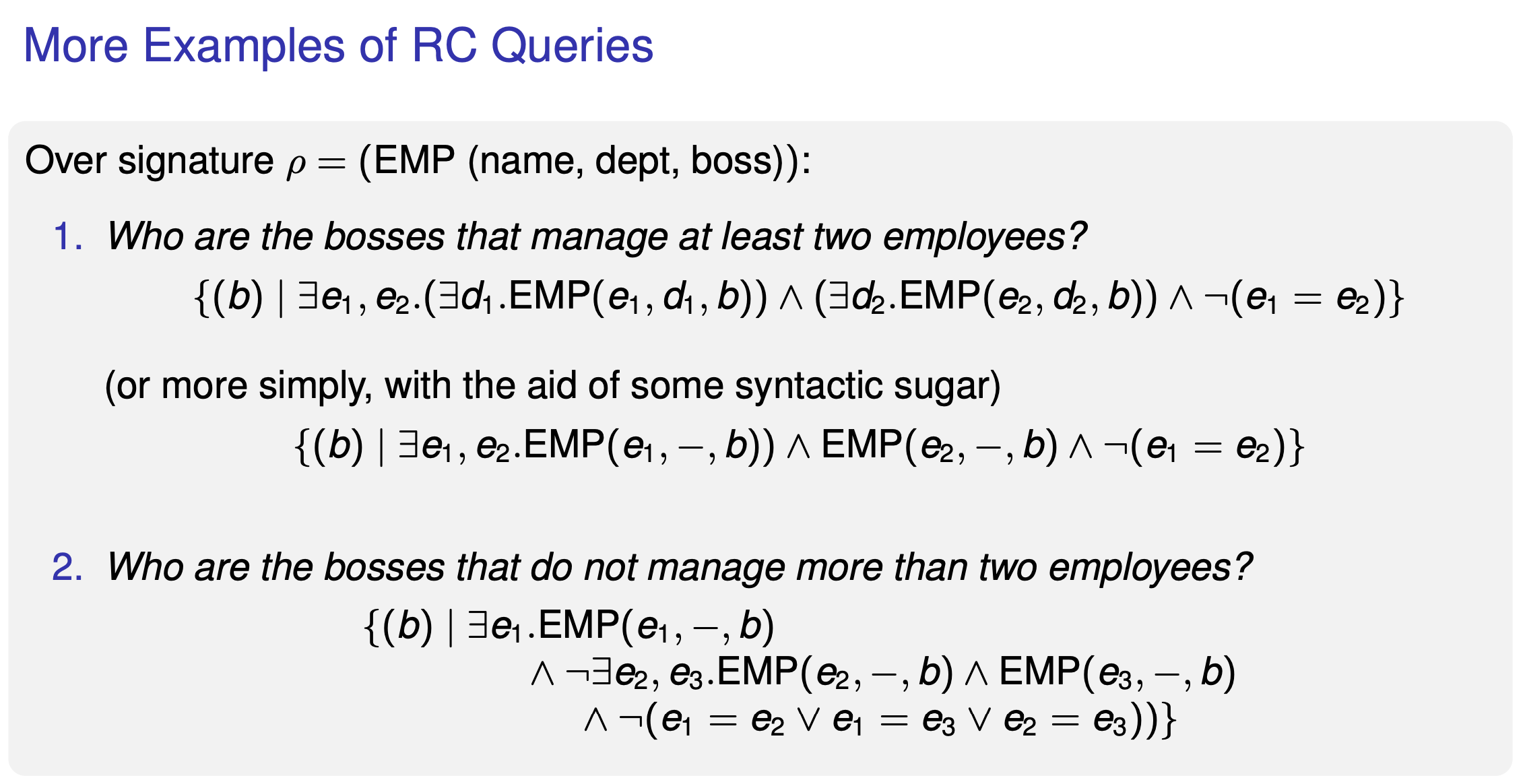
Safety
Integrity Constraints aren’t enough for a RDBMS. We also need to have following properties:
- The extension of any relation in a signature should be finite
- Queries should be safe: their answers should be finite when database instances are finite
Look at the following queries, which would have infinite answers:

Domain Independence
An RC query is domain independent when, for any pair of instances and and any if and only if
Theorem
Let be the signature of a relational database. Answers to domain independent queries contain only values that occur in the extension Ri of any relation .
safety ⇔ domain independence and finite database instances
Range-Restricted RC
